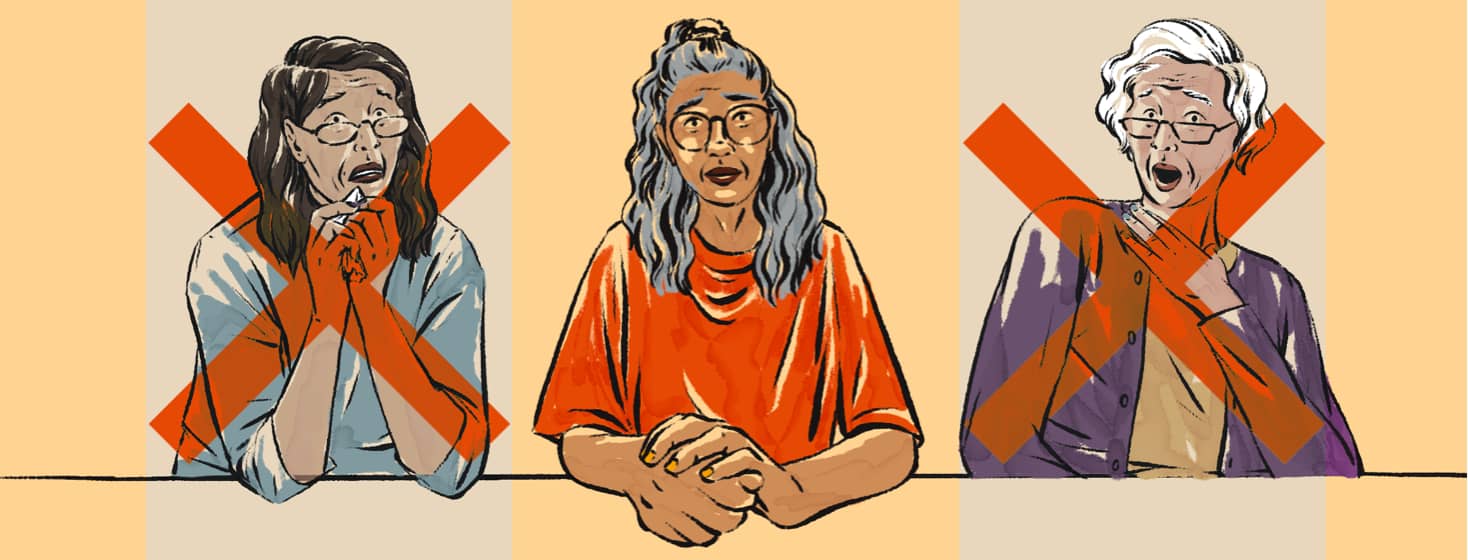How Do Friends and Loved Ones Respond to Your Vision Impairment?
Well, to me personally, their response has been “underwhelming” and a bit disappointing. But wait! They’re all good-hearted people and there’s got to be a reason we get the “thousand-yard stare” and little to no consoling words. Well, the best that I can come up with is that it’s very hard for them to know what to say to you! More on this later.
Difficult conversations around diagnoses
What would you say to someone with a debilitating impairment?
- Don't say, “It's going to be OK”.
- But do say something.
- Perhaps make clear that you'll be there for them.
- Maybe be careful about saying, “I'll pray for you”.
- Do try to create a semblance of normalcy. (Gasping and acting shocked is not helpful).
- Simply ask how they're doing — today.
- Do be a good listener.
- Don't get weepy and full of despair at the end.
How do you tell your family you are impaired?
Here's a few possibilities for talking to children:
- Tell one very trusted family member or friend and ask that person to spread the word among your loved ones.
- Meet with family members and friends individually to talk about your condition.
- Hold a "family meeting" to explain the news.
How to talk to children about the impairment of a loved one
- Think about your child's developmental stage.
- Talk first with your parenting partner.
- Find a time when you can sit for a long time and give your child undivided attention.
- Keep it simple and straightforward.
- Be truthful...
- Don't hide your own feelings.
Expressing emotions around visual impairments
What exactly am I trying to express? Why are we, the visually impaired, concerned about our friends and loved ones reaction to our disability?
Because there is a big difference between sympathy and empathy. I recently read an interesting article on this very subject. The article was expertly written by Jasmina Khanna, a disabled professional based in Mumbai. Jasmina says:
“Society has an attitude of sympathy towards disabled people with every accomplishment of theirs treated as extraordinary. Rather, people with disabilities are equals and should be deserving of the same opportunities like everyone else.”1
Sympathy vs. empathy
Hmmm, OK, but what is she trying to get across?
When it comes to differentiating between sympathy and empathy, there is a fine line between the 2. Yet both are distinctive from each other.
Sympathy can be defined as showing pity to someone who is lacking something in life or has limitations. Empathy from others can be displayed as their understanding of our feelings, thoughts, and emotions. In other words, they “GET” us! Rather than displaying pity, an empathetic person might offer us support and encouragement.
Accepting others emotions
Why do I care what someone else feels toward my vision impairment?
Well, the truth is, I don’t!... and I do!
Perplexing, isn’t it? Bottom line is, I don’t want them fawning and getting squirmy about my impairment. That reaction is textbook sympathy. It only makes me feel lousy and “less than”. However, encouragement and support are welcome! It makes me feel stronger and more able to persevere through the hurdles of visual impairment.
Or lack of empathy?
Lastly, what about all those people that have absolutely no words or reactions to our visual impairment?
That's not our problem, it’s theirs! They can’t possibly know what it’s like and what our challenges are. But you know who does? YOU DO!!!
A supportive community
Yep, that’s why belonging to our macular degeneration community is so important. We are sharing our experiences, fears, strengths, hopes, and a lot of other things. We learn vicariously from one another’s experiences and emotions. In simple terms, we support each other in a way no one else can.
There’s strength in numbers, as is said. Did you know that the MacularDegeneration.net Facebook page has ~12,000 followers? And the number is even greater when you count the website! I’m glad you’re with me on this journey and I wish you well.
P.S. Read Andrea Junge’s great article 'What’s the difference between MacularDegeneration.net’s Facebook page and website?'.

Join the conversation